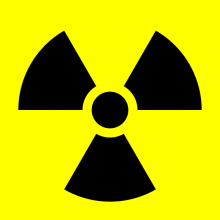It wasn’t like 9/11. We don’t all remember where we were on June 14, 2014. Most of the world was asleep when the gentle tremor was felt in parts of Iran and Iraq. For that matter, most of the world’s leaders had been asleep for months and years beforehand, and that was the problem. But I digress.
The day didn’t seem important at first. In Iran it was some special holiday, I think. The observance of the birthday of the Mahdi, a religious superhero in Shia Islam who they believe will return to earth some day. But that’s only relevant to Shiites, and I guess that’s why Iran did it that day. Oh, I’m sorry, I forgot that so much has happened you may have forgotten what even happened on June 14. That’s when the world ended.
Exaggeration, I know. But when Iran detonated a multi-kiloton nuclear bomb underground at 1:06 PM Iranian time, it sure seemed like the world came to end. Well, the world we knew anyway.
The set-up was simple enough: Iran had renewed nuclear negotiations with the major world powers the year before. They had been hailed as “productive,” “progressive,” and finally, “conclusive.” Iran had agreed to allow snap inspections of its nuclear sites, shipped out a sizable amount of its nuclear fuel and even temporarily closed the doors on its underground nuclear facility at Qom.
In return, the world had ended most of the major sanctions on Iran. The oil embargo from Europe was reduced in stages and several major Iranian banks were welcomed back into the global “safe to do business with” group. The Iranian economy improved.
So did the centrifuges.
See, that was the trouble with the deal the world made with the devilish Iranians. They let the Iranian centrifuge-based uranium enrichment program—which makes nuclear fuel—continue.
At first, that was fine. Iran was developing fuel for their civilian nuclear program and all the inspections said it was stopping there. The only point of interest was that the centrifuge testing continued. Iran had stopped many of them as part of the deal, but they kept working on them and improving them. And did they ever improve.
The centrifuges take the lower-quality uranium and help produce the nuclear-quality fuel. There are many levels to nuclear fuel, but suffice it to say military-grade is very high quality. While Iran could build it, they seemed content not to do so at the time. So the inspectors kept seeing lower level fuel and kept reporting that.
Month after month.
And then came the rift.
It started so small. So insignificant.
A major Iranian bank was caught laundering for terrorists.
Then the United States’ Congress renewed sanctions on the bank.
Europeans got scared to work with the bank and Iran’s currency value dropped.
Iran complained. Then Iran held meetings at the United Nations to protest.
Then Iran issued an ultimatum: Halt sanctions or they’d stop inspections.
The nuclear inspections. That were keeping tabs on Iran’s program.
The US didn’t budge. They shouldn’t have and finally didn’t.
But it was too late for backbone. Iran kicked out the UN.
The nuclear inspectors were sent home.
The US complained now, ever louder.
And the nuclear program shifted.
And the level of fuel changed.
Weapons-grade was made.
In weeks. Just 22 days.
And it came….
Boom.
It was just a ruse, really. Iran never intended to keep the nuclear inspections going. Maybe the Iranian bank even wanted to be caught laundering funds for terrorists. Regardless, it gave them the perfect reason to kick out the inspectors. While the West was trying to negotiate the return of the watchdogs, Iran was building nuclear weapons.
Iran was so close already, it didn’t take them long. The experts, such as Dr. Olli Heinonen, a former Deputy Director of the UN’s nuclear watchdog, had warned us Iran was only weeks away.
The Iranians just had to decide when they wanted those weeks to begin. They just needed a cover. And the deal with the West reached just months beforehand provided them that.
The economic pressure on Iran due to the West’s sanctions subsided after their half-hearted deal was accepted by the major world powers. And in the quiet they prepped nicely in ways that didn’t alarm anyone.
So all they needed were a few weeks. A crisis with their bank being sanctioned allowed them to pretend to be “defrauded” by the West and “suspend” their deal with the world by kicking out the inspectors. While the US tried to arrange a new conference with Russia and China and Europe to meet with Iran, the Iranians turned their civilian nuclear program into a militant one.
And then they had the bomb.
Israel was two days from launching a pre-emptive strike on Iran. But the US wouldn’t give them the intelligence they needed to navigate Iran’s air defenses. Something about being not upsetting the “delicate” negotiations with Iran. When they finally gave in and offered it to Israel, it was too late.
We were all too late.
If you slept in late that morning, you may have missed the announcement by Iran that they had become a nuclear power. You may have even shrugged when you heard the US had convened an “emergency meeting” of the UN Security Council that night.
So if you forgot what happened on June 14, 2014, that’s understandable. A lot has happened since then.
(By Joshua Spurlock, www.themideastupdate.com, November 3, 2014)

